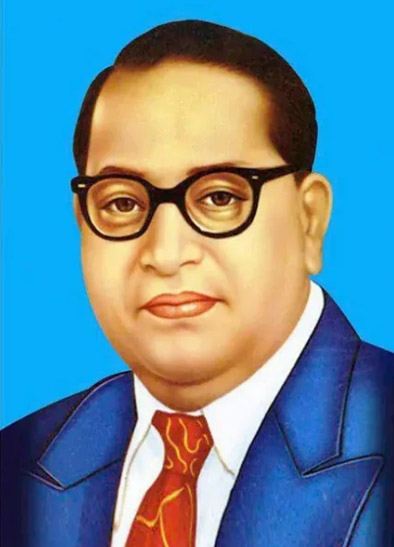Ankush Kumar
The architect of the Indian Constitution: Dr B R Ambedkar and his idea of Social Justice. The promotion of equal opportunities for every citizen is the basis of Social Justice, which is the core of the Indian Constitution. Dr B R Ambedkar, who was the chief advocate of Social Justice, designed the Indian Constitution. On 14 April, his birth anniversary, we should review his vision of constructing a society based on social justice. Ambedkar believed that social justice is a way of establishing a just and perfect society. He argued that a society that is truly fair is one that does not have the caste system and is founded on the concept of social justice. Ambedkar also stated that social justice involves three fundamental elements: liberty, equality, and fraternity. His ideal and fair society is based on two basic principles. First, the individual is not a means to an end but an end in himself, and the goal and purpose of society should be the development of the individual. He was of the opinion that society is not above the individual but exists solely for the benefit of all. Therefore, an individual must be willing to submit to society for the greater good. One of his main principles was that society should be based on liberty, equality, and fraternity. James Massey contended that Ambedkar’s vision for society did not allow for caste, as caste-based society does not offer freedom to the individual. Consequently, for Ambedkar, the individual is the ultimate goal. Justice is another crucial aspect of Ambedkar’s vision for society. According to Ambedkar, justice is simply another term for liberty, equality, and fraternity and these are the three fundamental principles of Ambedkar’s idea of social justice and let’s examine each of them in detail.
Components of Social Justice
Ambedkar, while citing Laski, stated that liberty consists of three key components. According to him, true liberty requires certain social conditions to be met. The first condition is social equality among all citizens, which means that social rights should be distributed equally to everyone so that they can enjoy and exercise their freedom. The second condition is economic security for every citizen, which means that individuals should be free to choose their profession without fearing unemployment.
The third condition is the availability of knowledge and related resources for every individual to exercise their freedom in accordance with their rationality.
All humans are inherently equal and are entitled to the same fundamental rights and liberties. Equality is a crucial aspect of social justice, as it opposes the ranking and segregation of individuals based on their caste, creed, sex, or religion. Ambedkar acknowledged that these divisions perpetuate inequality and thus, promoting equality is a fundamental tenet of building a modern and just society.
The concept of fraternity is the third crucial element of social justice. Ambedkar argues that there are two prominent forces in society: fraternity and individualism. When individualism is taken to an extreme, it only serves one’s own interests, leading to behaviour that is detrimental to society. Conversely, fraternity is a force that is based on the emotion of fellow feeling. It is a sentiment that enables an individual to recognise the good of others and act for their benefit. Therefore, excessive individualism can lead to anarchy, while fraternity helps to counter the force of individualism and maintain moral order among all human beings.
Ambedkar, who was well aware of the issues arising from conflicting interests and the societal conditions in India, is considered the chief architect of the Indian Constitution. The Indian Constitution is an exemplary demonstration of social engineering, with social justice being a fundamental principle. Ambedkar visualized a new economic, political, and social order that would lay the foundation for a society in India with a just soul based on the principle of social justice.
(The author is a PhD Scholar JNU)
Trending Now
E-Paper


